Introduction to Environmental Science (ENVS 21)
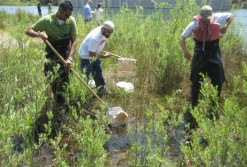
This course presents an introduction to environmental issues, seen through the lens of the biological sciences. Basic scientific concepts at different scales of biological organization, from genes to ecosystems, are illustrated by their application to contemporary environmental questions. In lecture, students are expected to think critically, read widely, and participate in group discussions. In laboratory and field exercises, the emphasis is on applying the scientific method and analyzing data. Laboratory 15 hours. (4 units)
Click here for syllabus.
Click here for syllabus.
Natural History of Baja California (ENVS 144/BIOL 144)
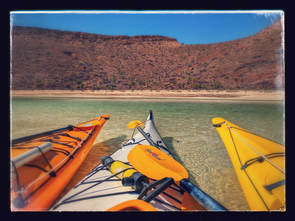
This course meets in winter quarter and then travels to Mexico for a 10-day natural history expedition over spring break. Course material covers multiple aspects of the natural history of Baja California Sur, with emphasis on the taxonomy of marine and terrestrial organisms, the ecology of desert and coastal ecosystems, and the biogeography of the peninsula. Students become familiar with desert, riparian, beach, mangrove, and rocky intertidal habitats, develop field observation and species identification skills, and explore local conservation challenges. The course also offers a chance to experience the outdoors, unplug from electronics, and bond with a group of fellow nature enthusiasts.
Admission to this course is by application ONLY. Applications become available in approximately mid-October for the following winter quarter. Course fees run about $1600 plus airfare.
Click here for 2017 syllabus. This course will next run in Winter 2019. Note that BIOL 144 counts for the Biology Major as a non-lab upper division course.
Here you can watch student-made videos from 2017, one by Ella Kobelt and the other by Sammi Bennett.
Admission to this course is by application ONLY. Applications become available in approximately mid-October for the following winter quarter. Course fees run about $1600 plus airfare.
Click here for 2017 syllabus. This course will next run in Winter 2019. Note that BIOL 144 counts for the Biology Major as a non-lab upper division course.
Here you can watch student-made videos from 2017, one by Ella Kobelt and the other by Sammi Bennett.
Restoration Ecology (ENVS 151/BIOL 151)
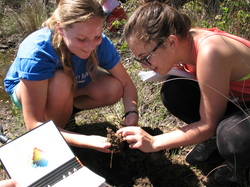
The science and practice of restoring degraded ecosystems, with an emphasis on plant ecology. Through field trips to restoration projects and examination of case studies from the literature, students will grapple with basic questions: How do we decide what to restore? How do we restore it? And how do we know if we're finished? Emphasis on reading and writing scientific papers, understanding data analysis, and critically judging the success of restoration projects in meeting goals of biodiversity and ecosystem function. Laboratory and field work 30 hours. Also listed as BIOL 151. Prerequisite: BIOL 23 or ENVS 21. (5 units)
Click here for syllabus.
Students blogged our field trips in spring 2015 on the SCU Gone Wild webpage.
Click here for syllabus.
Students blogged our field trips in spring 2015 on the SCU Gone Wild webpage.
Statistics for Environmental Science (ENVS 110/BIOL 160)
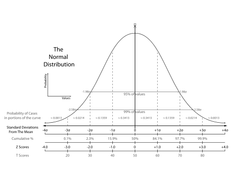
A course in applied statistics for environmental scientists. Students gain training in experimental design, quantitative analysis, and hypothesis testing. Theory and concepts are covered in lectures and readings. Laboratory sessions provide practical experience using statistical software. Examples used in lectures and lab assignments are derived from medical research, public health, and environmental risk assessment. Laboratory 30 hours. Also listed as BIOL 160, Biostatistics. Prerequisite: BIOL 23 or ENVS 21. (5 units)
Click here for syllabus.
Click here for syllabus.
Senior Capstone (ENVS 101)

Capstone is a guided team research course that assigns students to apply their skills to specific environmental projects of interest to local clients, usually nonprofits or government agencies. Topics change yearly according to the needs of clients, expertise of faculty, and skills of students.
Environmental Proseminar (ENVS 198)
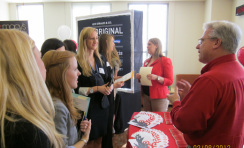
A seminar course for graduating seniors, intended to permit reflection on an internship or research experience and foster the further development of professional skills. Prior to enrolling, students must complete 100 hours of work in one of the following options: (1) an approved off-campus environmental internship (see your academic adviser for approval before initiating the internship), (2) approved environmental research with SCU faculty (ENVS 199A or 199B) or as part of a study abroad program. Students pursuing Option 1 enroll for 5 units; those pursuing Option 2 enroll for 2 units. Students are graded P/NP only.Prerequisites: Completion of 100 hours of internship or research and senior class standing.(2 or 5 units). Click here for syllabus.
